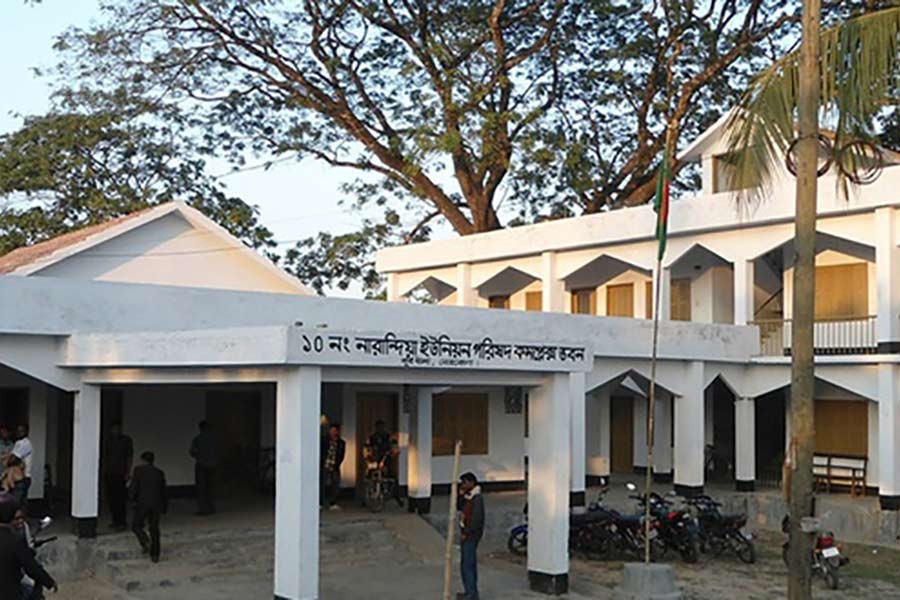That the local government (LG) bodies are failing to draw proper attention of the government is evident from the low level of decision making and financial power they enjoy and the insufficient amount they spend annually from the national budget. A World Bank (WB) report unveiled in Dhaka at a seminar late last week highlighted by the numbers the government's lack of interest in these institutions. According to the report, the LG bodies in Bangladesh spend only 7.0 per cent of the government's annual budget. The amount is far too small, compared to the money spent by the developing (19 per cent) and developed countries (28 per cent), on an average, from their national budgets.
The government's indifference, deliberate or otherwise, remains a major hurdle for the LG bodies to deliver services up to the satisfaction of the people. With all the shortcomings in relation to decision-making powers, availability of resources, manpower and logistics, it is not possible for these vital local-level institutions to deliver what the people expect from them. So, the WB has made a strong suggestion to make these entities truly effective. The Bank wants the government to decentralise administrative as well as financial power in favour of the LG bodies to help the country achieve the upper middle income status.
The fact remains that the government does not need any advice on the issue either from a local institution or an external donor agency. The country's Constitution has provided necessary direction for everybody as far as LG institutions are concerned. Articles 59 and 60 amply delineate the characteristics of the LG bodies and the power they will enjoy. Had the government followed the constitutional guideline faithfully, the LG bodies would have delivered far improved services to the people and made greater contribution to the nation's journey towards progress.
In many countries, LG institutions do play a very important role in providing basic services such as education, healthcare, water supply and sanitation in their respective localities. Some are even empowered to maintain law and order. However, all these are possible only when the central government is ready to transfer a part of its power to the local-level authorities to raise taxes and fees and spend the same independently under the authority bestowed on them by their electorates.
There is no denying that the country badly needs strong LG bodies to spur development, particularly at the grassroots. This is all the more necessary to help rein in an unending migration of the rural people to urban centres in search of jobs and other facilities. However, this will be possible only when the policymakers at the centre would be ready to share power with the local-level people's representatives and allocate a reasonable volume of resources to LG bodies on a regular basis.
It will be worthwhile to mention here that the policymakers do often speak about developing the upazilas as growth centres to help create employment opportunities. But the idea will continue to elude them until they decide to devolve power to that important tier of the LG system. The government should also review the accountability mechanism in place for the people's representatives manning the LG bodies. This is necessary to uphold the democratic spirit as enshrined in the Constitution.


